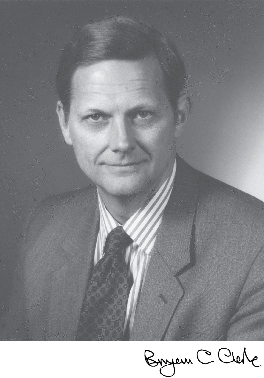Related Research Articles

The American Philosophical Society (APS) is an American scholarly organization and learned society founded in 1743 in Philadelphia that promotes knowledge in the humanities and natural sciences through research, professional meetings, publications, library resources, and community outreach. It was founded by the polymath Benjamin Franklin and is considered the first learned society founded in what became the United States.

Nottingham Trent University (NTU) is a public research university in Nottingham, England. Its roots go back to 1843 with the establishment of the Nottingham Government School of Design, which still exists within the university today. It is the sixth largest university in the UK with 35,785 students split over five different campuses in Nottingham. The university has most recently opened a new campus in London.

Philosophy, politics and economics, or politics, philosophy and economics (PPE), is an interdisciplinary undergraduate or postgraduate degree which combines study from three disciplines. The first institution to offer degrees in PPE was the University of Oxford in the 1920s.
Contemporary philosophy is the present period in the history of Western philosophy beginning at the early 20th century with the increasing professionalization of the discipline and the rise of analytic and continental philosophy.

Bryan Campbell Clarke was a British Professor of genetics, latterly emeritus at the University of Nottingham. Clarke is particularly noted for his work on apostatic selection and other forms of frequency-dependent selection, and work on polymorphism in snails, much of it done during the 1960s. Later, he studied molecular evolution. He made the case for natural selection as an important factor in the maintenance of molecular variation, and in driving evolutionary changes in molecules through time. In doing so, he questioned the over-riding importance of random genetic drift advocated by King, Jukes, and Kimura. With Professor James J Murray Jnr, he carried out an extensive series of studies on speciation in land snails of the genus Partula inhabiting the volcanic islands of the Eastern Pacific. These studies helped illuminate the genetic changes that take place during the origin of species.

The American Philosophical Association (APA) is the main professional organization for philosophers in the United States. Founded in 1900, its mission is to promote the exchange of ideas among philosophers, to encourage creative and scholarly activity in philosophy, to facilitate the professional work and teaching of philosophers, and to represent philosophy as a discipline. The APA's governance has included Robert Audi, Jaegwon Kim and Ruth Barcan Marcus.

Nancy Cartwright, Lady Hampshire is an American philosopher of science. She is a professor of philosophy at the University of California at San Diego and the University of Durham. Currently, she is the President of the Division for Logic, Methodology and Philosophy of Science and Technology of the International Union of History and Philosophy of Science and Technology.

The Cambridge Philosophical Society (CPS) is a scientific society at the University of Cambridge. It was founded in 1819. The name derives from the medieval use of the word philosophy to denote any research undertaken outside the fields of law, theology and medicine. The society was granted a royal charter by King William IV in 1832. The society is governed by an elected council of senior academics, which is chaired by the Society's President, according to a set of statutes.

Anthony Clifford Grayling is a British philosopher and author. He was born in Northern Rhodesia and spent most of his childhood there and in Nyasaland. In 2011 he founded and became the first Master of New College of the Humanities, an independent undergraduate college in London. Until June 2011, he was Professor of Philosophy at Birkbeck, University of London, where he taught from 1991. He is also a supernumerary fellow of St Anne's College, Oxford, where he formerly taught.
David Hugh Mellor was a British philosopher. He was a Professor of Philosophy and Pro-Vice-Chancellor, later Professor Emeritus, of Cambridge University.
The Association for the Scientific Study of Consciousness (ASSC) is an American non-profit organization for professional membership that aims to encourage research on consciousness in cognitive science, neuroscience, philosophy, and other relevant disciplines. The association aims to advance research about the nature, function, and underlying mechanisms of consciousness.
Stephen Dean Mumford is a British philosopher, who is currently Head of Department and Professor of Metaphysics in the Department of Philosophy at Durham University. Mumford is best known for his work in metaphysics on dispositions and laws, but has also made contributions in the philosophy of sport.
Penelope Mackie (1953–2022) was a British philosopher who specialised in metaphysics and philosophical logic, and was best known for her work on essence and modality. Mackie spent the majority of her career in the Department of Philosophy at the University of Nottingham (2004–22), having also held appointments at the University of Birmingham, Virginia Commonwealth University, and New College, Oxford.

Barry Stroud was a Canadian philosopher and professor at the University of California, Berkeley. Known especially for his work on philosophical skepticism, he wrote about David Hume, Ludwig Wittgenstein, the metaphysics of color, and many other topics.

The University of Nottingham is a public research university in Nottingham, England. It was founded as University College Nottingham in 1881, and was granted a royal charter in 1948.
The Faculty of Philosophy, University of Oxford was founded in 2001. It is part of Oxford's Humanities Division. The faculty is located next to Somerville College on Woodstock Road. As of 2021, it is ranked 1st in the UK and 2nd in the English-speaking world by the Philosophical Gourmet Report, as well as 4th in the world by the QS World University Rankings. It is additionally ranked first in the UK by the Complete University Guide, the Guardian, the Times, and the Independent.

The Philosophy Documentation Center (PDC) is a non-profit publisher and resource center that provides access to scholarly materials in applied ethics, classics, philosophy, religious studies, and related disciplines. It publishes academic journals, conference proceedings, anthologies, and online research databases, often in cooperation with scholarly and professional associations. It also provides membership management and electronic publishing services, and hosts electronic journals, series, and other publications from several countries.
The Karl Jaspers Society of North America (KJSNA) is a philosophy organization founded on December 28, 1980 by George B. Pepper, Edith Ehrlich, and Leonard H. Ehrlich to promote study and research on the ideas of Karl Jaspers and related issues in continental philosophy. The prospect of forming this society emerged from the research by these scholars while preparing a systematic reader of the basic philosophical writings of Karl Jaspers. Enthusiastic response to the reader prompted Pepper and Ehrlich to conclude that a learned society to study the work of Jaspers should be founded.

Benjamin Guy Davis is Professor of Chemical biology in the Department of Pharmacology and a member of the Faculty in the Department of Chemistry at the University of Oxford and a Fellow of Pembroke College, Oxford. He holds the role of Science Director for Next Generation Chemistry (2019-2024) and Deputy Director (2020-) at the Rosalind Franklin Institute.
George N Schlesinger was a philosopher, rabbi, and author. He made major contributions in the areas of philosophy of religion, and philosophy of science. He taught and conducted research as a professor of philosophy at the University of North Carolina at Chapel Hill, from 1967 to 1999, and as a visiting professor at several other universities. His teaching and research interests included philosophy of time, philosophy of logic, and theism. He authored 10 books and more than 300 articles, earned many awards, and gave many presentations as a sought after speaker. His presentations at a summer conference resulted in the Philosophy of Time Society. This society is still active to this date. Schlesinger was also an ordained rabbi, and authored many articles in the area of philosophy of Judaism. He led services, and taught at the University of North Carolina Hillel, as well as yeshivas and synagogues in England, Australia, and Israel. As an author, he has been largely collected by libraries worldwide.
References
- ↑ "Welcome to the Philosophy of Time Society – The University of Nottingham". Nottingham.ac.uk. Archived from the original on January 14, 2012. Retrieved November 10, 2011.
- ↑ "Philosophy of Time Society" . Retrieved June 3, 2024.
- ↑ "Officers | Philosophy of Time Society" . Retrieved June 3, 2024.
- 1 2 The Importance of Time. Springer.com. Retrieved November 10, 2011.
- ↑ "Conferences – The University of Nottingham". Nottingham.ac.uk. Archived from the original on August 5, 2011. Retrieved November 10, 2011.
- ↑ "Meetings | Philosophy of Time Society" . Retrieved June 3, 2024.